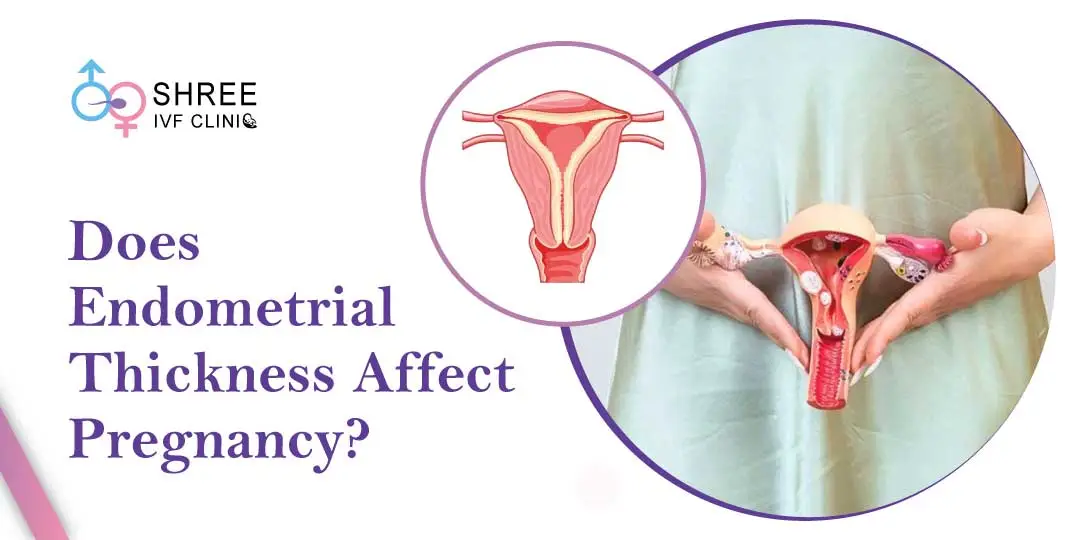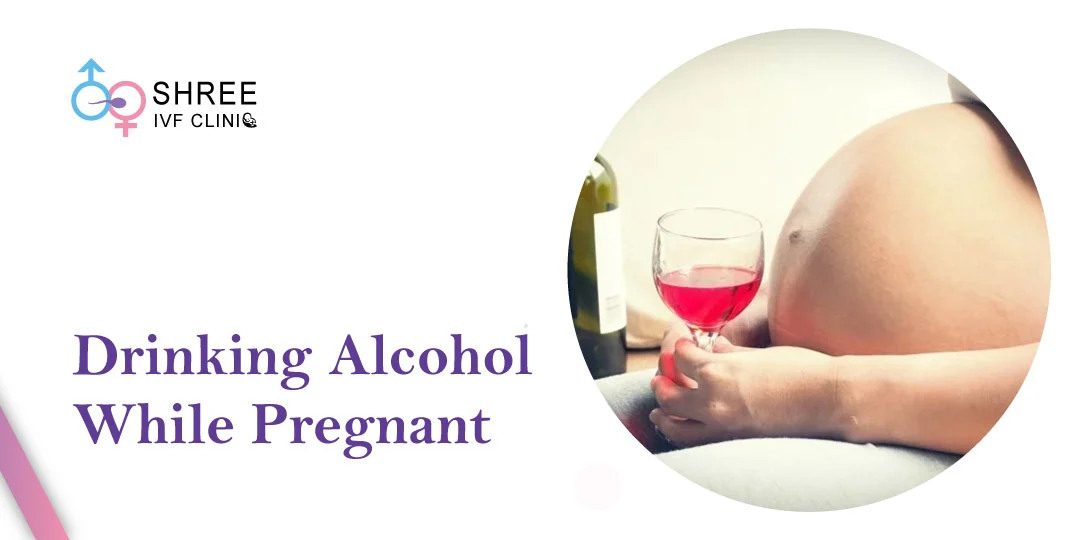Use of Probiotics in Recurrent Pregnancy Loss
UPDATED ON 16TH APR. 2025
Here’s the straightforward answer:
Probiotics—the good bacteria you find in curd or supplements—might support your body and improve your chances of a healthy pregnancy, but they’re not a magic fix on their own.
Hi, I’m Dr. Jay Mehta, an IVF and infertility specialist and endometriosis surgeon at Shree IVF Clinic in Mumbai, and I’ve seen many couples like you struggling with repeated miscarriages, feeling lost and unsure about what to do next.
It’s tough, and I get how confusing it can be with all the advice floating around. In this article, I’ll explain what recurrent pregnancy loss is, how probiotics might play a role, and what the science says—plus practical steps you can take.
You’ll get everything in one place—clear answers, expert insights, and hope—so you don’t have to sift through endless sources.
Let’s walk through this together!

AUTHOR
Dr Jay Mehta
Scientific Director & IVF Specialist with 10+ years of experience
CONDITION
GET IN TOUCH ON
What Is Recurrent Pregnancy Loss?
Imagine you’re planting seeds in a garden, but before they can grow into flowers, they keep wilting away.
That’s a bit like recurrent pregnancy loss—it’s when a woman loses two or more pregnancies before the baby can survive outside, usually before 20 weeks.
It’s heartbreaking, and it happens to about 1-2% of couples trying to have a baby. You might feel like your body’s letting you down, but I’m here to help figure out why and what we can do.
What Are Probiotics?
Probiotics are like tiny helpers—good bacteria that live in your body, especially in your gut, and keep things running smoothly. You’ve probably had them in curd (dahi) or seen them in capsules at the chemist.
They’re the same friendly germs that make your stomach feel better after a spicy meal. They balance out the bad bacteria, help digestion, and might even give your immune system a boost.
But can they help with pregnancy loss? Let’s find out.
Why Do Recurrent Pregnancy Losses Happen?
Before we talk about probiotics, let’s understand why pregnancies might keep ending too soon. It’s like solving a puzzle—there could be many pieces:
- Chromosome Issues: The baby’s building blocks might not fit together right.
- Hormone Problems: Not enough support—like water for a plant—keeps the pregnancy from growing.
- Womb Troubles: If the uterus has scars or an odd shape, it might not hold the baby.
- Blood Clotting: Tiny clots can block the baby’s food supply.
- Infections or Swelling: Bad bacteria or irritation in your body might upset things.
Sometimes, we don’t find one big reason—it’s a mix of small things. That’s where probiotics come in as a possible helper.
How Might Probiotics Help with Pregnancy Loss?
Your body is like a busy city, and probiotics are like the cleaners keeping the streets healthy. Here’s how they might make a difference:
- Balancing Bacteria: In your gut and private areas, good bacteria fight off bad ones. If bad bacteria take over—like weeds in a garden—they might cause swelling that harms a pregnancy. Probiotics keep the balance.
- Calming Swelling: Too much swelling (inflammation) in your body can make the womb a tough place for a baby to grow. Probiotics might cool things down, like rain on a hot day.
- Boosting Immunity: Your immune system sometimes gets confused and fights the pregnancy. Probiotics might calm it, helping your body accept the baby.
- Healthy Womb: A balanced gut might support the womb lining, making it stickier for the baby-to-be to settle in.
A woman came to me at Shree IVF Clinic after three miscarriages. Her tests were normal, but she had tummy troubles—bloating and irregular motions.
We added probiotics to her routine alongside other treatments, and her next pregnancy was held.
It’s not proof they did it alone, but it was part of her success story.
What Does Science Say About Probiotics?
Here’s where I’ll be honest—research on probiotics and pregnancy loss is still growing. It’s like a half-written book—we’ve got some chapters, but not the whole story.
- Gut Health: Studies—like one from the Journal of Reproductive Immunology—show that women with recurrent losses often have more bad bacteria in their gut or private areas. Probiotics can shift this balance, and some small studies hint they might lower miscarriage risk.
- IVF Help: In women doing IVF, probiotics have improved pregnancy rates in a few trials—up to 10-15% better chances—by making the womb friendlier.
- Not a Cure: Big studies haven’t proven probiotics stop all miscarriages. They’re more like a support act, not the main hero.
In India, we’re seeing more interest in this—many of my patients ask about it because it feels natural and safe. But it’s not a standalone fix—it works best with other treatments.
Who Might Benefit from Probiotics?
Probiotics aren’t for everyone, but they could help if:
- You’ve had infections or tummy issues (like loose motions or bloating).
- Your losses don’t have a clear cause—like chromosomes or womb shape.
- You’re doing IVF and want an extra edge.
- You’ve got conditions like endometriosis or PCOS, where swelling plays a role.
If your losses are from something specific—like a clotting problem—probiotics alone won’t solve it. We need to match the treatment to the cause.
How Can You Use Probiotics Safely?
Thinking of trying them? Let’s do it right:
- Food First: Start with curd—homemade or plain from the shop. It’s full of good bacteria like Lactobacillus. Add a bowl daily.
- Supplements: If you want more, pick a probiotic capsule—look for ones with Lactobacillus or Bifidobacterium (ask your chemist for a good brand). Aim for 10-20 billion units a day.
- Timing: Take them with food for best results, and keep it up for at least 2-3 months to see a difference.
- Check with Me: Before starting, let’s talk—some probiotics might not suit you, especially if you’ve got allergies or a weak immune system.
Checklist for Starting:
- Grab a bowl of curd for lunch today.
- Ask your chemist for a probiotic with Lactobacillus tomorrow.
- Note any tummy changes over a week—better or worse?

4,790+
379K+
What Else Can You Do for Recurrent Pregnancy Loss?
Probiotics are just one piece—here’s the bigger picture:
- Tests: Blood checks for hormones, clotting, or infections; scans for your womb.
- Medicines: Hormones to support pregnancy or blood thinners if needed.
- IVF: If natural tries fail, we can make a baby in the lab and place it in your womb—success rates at Shree IVF Clinic are 40-50% per cycle.
Surgery: For endometriosis or womb issues, a small operation might help.
Are There Risks with Probiotics?
They’re usually safe—like eating curd every day—but:
- Tummy Upset: Some get bloating or gas at first—it settles down.
- Rare Issues: If your immune system’s weak (like after a big illness), talk to me first.
- Quality: Not all supplements are good—stick to trusted brands.
In India, we’ve got plenty of natural options, so you don’t always need fancy pills.
Lifestyle Tips to Go with Probiotics
Your daily habits matter too:
- Eat Well: Dal, roti, sabzi, and fruits keep your gut happy.
- Stay Active: A 20-minute walk or yoga helps your body and mind.
- Sleep: 7-8 hours nightly—your body needs it to heal.
Cut Stress: Deep breathing or a quiet chai break can calm you.
When Should You See Me?
I’ve been helping couples in Mumbai for over a decade, blending IVF expertise with a personal touch. At Shree IVF Clinic, we don’t just throw treatments at you—we figure out what fits, whether it’s probiotics, surgery, or IVF. I’ll sit with you, explain it all, and find your path to a baby.
If you’ve had two or more losses, don’t wait—come chat with me. Bring your story—any tummy issues, period pains, or past treatments. The sooner we start, the better we can help.
Your Next Steps: Let’s Move Ahead
Here’s what you can do now:
- Count Losses: Two or more? Time to see me.
- Try Probiotics: Start with curd daily—see how you feel.
- Reach Out: Call Shree IVF Clinic —let’s talk about your journey.
- Small Wins: Add a walk or extra sleep tonight.
You’re here because you want a family, and I’m here to help. This article’s got everything—science, steps, and support—so you don’t need to look elsewhere.
Still got doubts? Let’s sort them out together—I’m just a call away.
AUTHOR
Dr Jay Mehta
Scientific Director & IVF Specialist with 10+ years of experience
CONDITION
CALL US 24/7 FOR ANY HELP
GET IN TOUCH ON
Share Article on
Recommended Reading
Are IVF Pregnancies High Risk?
Yes, ivf pregnancy can be slightly riskier than natural pregnancies, but with good care and regular checkups, most lead to a healthy baby & safe outcome for both mum and child
Endometriosis Thickness and Its Impact on Pregnancy
A good endometrial thickness (8-14 mm) is essential for pregnancy, especially in women with endometriosis. Learn how it impacts fertility and conception
Drinking in Early Pregnancy Without Knowing
Early pregnancy alcohol consumption raises risks of miscarriage and Fetal Alcohol Spectrum Disorders (FASD), affecting the baby’s health and development




